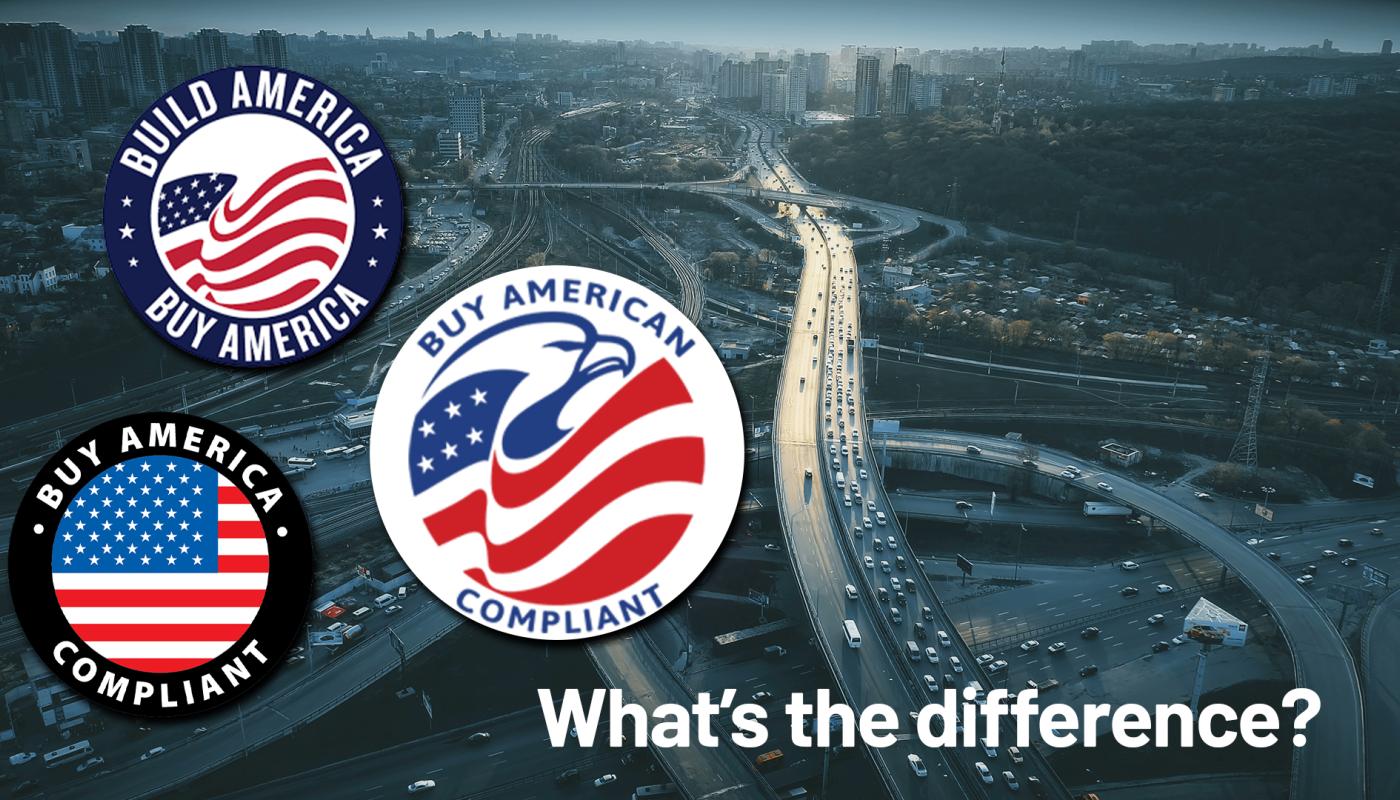Definitions and Differences
1. Buy America
The Buy America Act (BAA) pertains primarily to transportation-related projects and is often enforced by the Federal Highway Administration (FHWA) and the Federal Transit Administration (FTA). It requires the use of American-made steel and iron in federally funded transportation projects. The specific requirements can vary depending on the agency and the type of project, but generally, the materials must be manufactured in the United States, and there may be specific requirements for the percentage of domestic content.
Key Points:
- Applicable to transportation infrastructure projects.
- Focuses on iron and steel products.
- Administered by FHWA and FTA.
- Requirements can vary by project and agency.
2. Buy American
The Buy American Act (BAA) is broader and applies to all U.S. federal government purchases of goods. This act mandates that the U.S. government must prefer U.S.-made products in its purchases. The act applies to all goods, including manufactured products, construction materials, and supplies, but it provides exceptions for certain items that are not available domestically or are not of satisfactory quality.
Key Points:
- Applies to all federal government purchases.
- Covers a wide range of products and materials.
- Exceptions are possible for non-availability and quality issues.
3. Build America, Buy America (BABA)
The Build America, Buy America Act (BABA) is part of the Infrastructure Investment and Jobs Act (IIJA) and aims to strengthen domestic manufacturing and supply chains. It expands the scope of Buy America requirements to cover additional infrastructure sectors, including water, broadband, and energy, beyond traditional transportation projects. BABA ensures that American workers and businesses benefit from federal infrastructure investments.
Key Points:
- Part of the IIJA.
- Expands Buy America requirements to more infrastructure sectors.
- Ensures broader domestic manufacturing and supply chain benefits.
Material Certification Request Tutorial
TraffiCalm provides a streamlined process for requesting material certifications. The following steps and explanations will guide you through the process:
1. Types of Certifications:
- Type 1 - Statement of Conformance: A basic document providing a statement of conformance to general, Pelco, and/or customer specifications listed on the purchase order (PO). It certifies that the material was manufactured through monitored production processes.
- Type 2 - Mill Test Report (Typical): Provides a representative mill test report for each applicable raw material in an assembly. It does not distinguish specific batches or shipments.
- Type 3 - Mill Test Report (Actual): Includes a mill test report for each batch or shipment of raw material in an assembly. It allows tracing each certified component back to the lot or heat number of the raw material.
- Type 4 - Lab Test Report (Typical): An independent laboratory test report for each applicable raw material, not necessarily representing specific batches.
- Type 5 - Lab Test Report (Actual): An actual independent laboratory test report for each applicable raw material in an assembly.
- Buy America – Statement of Conformance. Includes BABA statement of conformance
- Buy American – Statement of Conformance. Includes BABA statement of conformance
2. Requesting Certifications:
To request a certification, you need to fill out the Material Certification Request Form. (MCRF-001)
For a State specific certification, you will need to fill out the form with all the pertinent information pertaining to the project, and submit it to TraffiCalm.
3. Submission:
Submit the completed form to TraffiCalm via email at Sales@Trafficalm.com or by mail to: 5676 E Seltice Way
Post Falls, ID 83854
For a faster turnaround, ensure that all required information is provided accurately.
4. Contact Information:
For any questions or additional assistance, you can contact TraffiCalm at (855) 738-2722.
Frequently Asked Questions (FAQs)
Q1: What is the difference between Type 1 and Type 2 certifications?
- Type 1 provides a basic statement of conformance, whereas Type 2 includes a typical mill test report for raw materials but does not specify batches or shipments.
Q2: How do I know which certification type to request?
- The certification type depends on your project requirements and specifications listed in the PO. If you need detailed traceability, a Type 3 or Type 5 certification might be appropriate.
Q3: Can I request multiple types of certifications for a single project?
- Yes, you can request multiple types of certifications as needed to meet your project specifications and compliance requirements.
Q4: What information is required for a State Specific certification request?
- You need to provide the project name, key number, contract number, item number, contract items, and any other relevant details related to the project.
Q5: How long does it take to process a certification request?
- The processing time can vary depending on the type of certification requested and the completeness of the provided information. For faster processing, ensure all required details are accurately submitted.
Q6: Are there additional charges for certain types of certifications?
- Yes, some certifications like Type 4 and Type 5 may incur additional charges due to the involvement of independent laboratory testing and detailed reporting.
For more detailed information and to obtain the Material Certification Request Form, please contact your regional sales manager.
By understanding the differences between BABA, Buy America, and Buy American, and utilizing the appropriate certification processes, you can ensure compliance and streamline your procurement activities.
